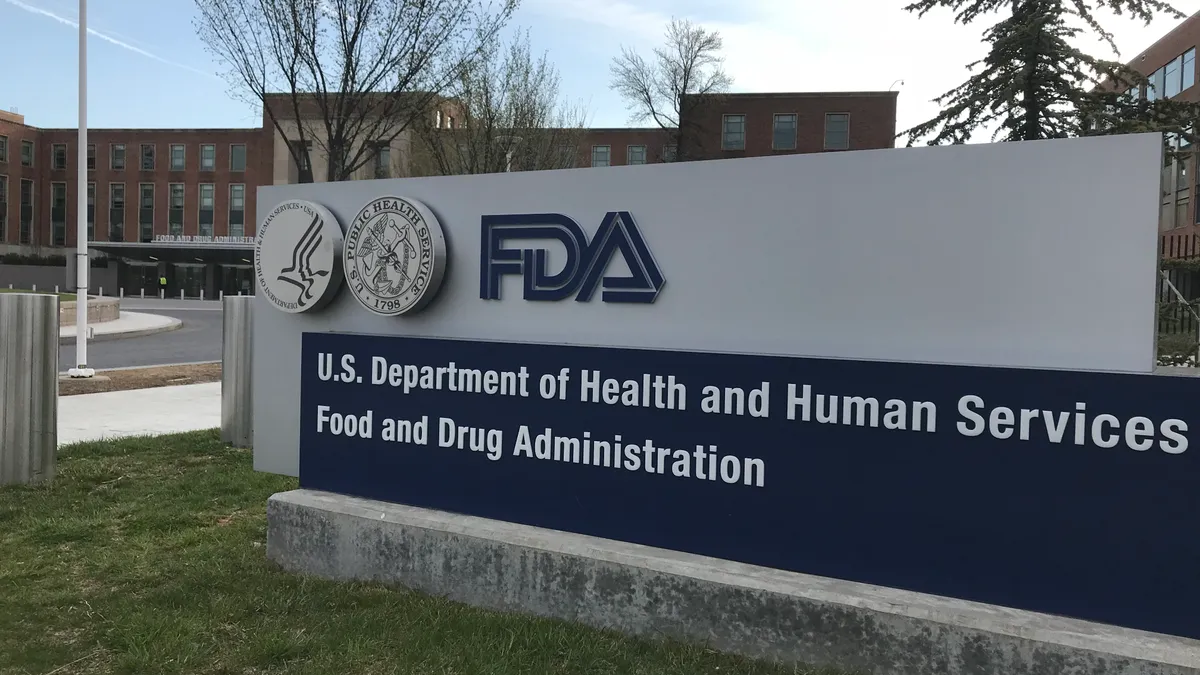Dive Brief:
- FDA finalized guidance outlining how it plans to employ a 'least burdensome' approach to medical device regulation, the latest step by the agency to help speed new devices through review. The guidance issued Monday fulfills an obligation under the 21st Century Cures Act to "periodically assess the implementation of the least burdensome requirements."
- The agency now defines the 'least burdensome' standard as "the minimum amount of information necessary to adequately address a relevant regulatory question or issue through the most efficient manner at the right time."
- Commissioner Scott Gottlieb said the new definition will help reduce "outdated burdens that can add to development costs or forestall beneficial innovations." But critics called it the latest step by FDA to speed device approvals at the expense of robust patient protection.
Dive Insight:
FDA emphasized the guidance does not change standards for device approval or clearance, but one watchdog worries it will have a chilling effect on FDA device staff when asking for data as they conduct product reviews.
Mike Carome, director of Public Citizen's Health Research Group, accused the agency of "being more interested in promoting the interests of industry rather than protecting public health," but acknowledged the concept of least burdensome principles have been imbedded into laws such as the 21st Century Cures Act.
He pointed to a paragraph that refers to FDA "providing 'excellent customer service,' " and suggested a tilt toward industry over public health.
"It's clear that the entities that they consider their customers in this context are device companies."
But Gottlieb argued collecting excessive information can impede review of relevant information and delay patient access to medical products. AdvaMed declined to comment on the final guidance, saying it is still reviewing the document.
"This 'least burdensome' concept has often been misunderstood," Gottlieb said. "The guiding principles outlined in this policy explain our approach to assuring we obtain the minimum information needed to adequately and most efficiently address relevant regulatory questions at the right time in our review of new device technologies, without compromising our stringent review standards, our gold standard for assuring safety, or the scientific integrity of our decision-making process."
The worry, Carome argues, is an environment where device reviewers at FDA are discouraged from raising questions and concerns that could potentially delay approval decisions.
"Despite clearly documented weaknesses in the medical device oversight process, they are pushing ahead to further limit as much as possible the oversight intended to ensure devices are safe and effective," Carome said. "This continues to push the envelope to limit the amount and quality of information that agency staff will ask for when approaching industry and making regulatory decisions."
In June 2018, FDA delivered a report to Congress on staff training on least burdensome principles, also required under Cures. It noted that FDA staff and industry perception of the least burdensome provisions differed.
"The differences in perception appear to indicate that, although moving in the right direction, training and supporting activities are yet to be fully embedded into [FDA] day-to-day operations," the audit noted.
Ethan Jorgensen-Earp, a public affairs advisor at Holland & Knight, told MedTech Dive the true impact of the guidance and least burdensome training may not be evident until FDA releases an audit of its deficiency letters and pre-submissions by the end of fiscal year 2020, required by the MDUFA IV Commitment Letter.
FDA will hold a webinar on the final guidance on March 14.











